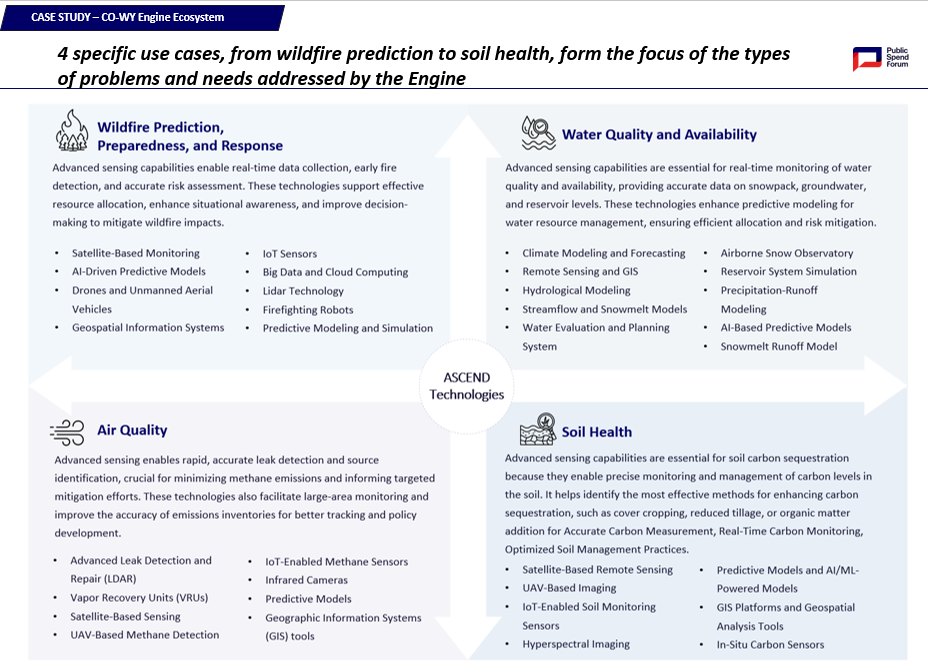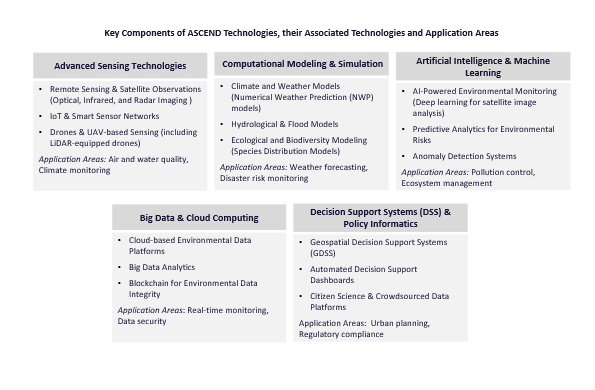Client Need
The Colorado-Wyoming Climate Resilience Engine asked PSF to map and analyze the region’s advanced sensing ecosystem under its ASCEND initiative. With increasing climate risks: wildfires, water pollution, soil erosion, air quality degradation the client sought to understand what technologies are mature (or emerging), what organizations are in the ecosystem (private, research, non-profit), and what gaps exist in demand, investment, and workforce. The aim was not just to document what is, but to identify where Colorado and Wyoming need to build capabilities if they want to lead in resilience technologies.
- Market ontology: Refining keyphrases for ASCEND’s four use cases to track technology maturity and alignment
- Ecosystem mapping: Cataloged 340 Colorado & Wyoming organizations, assessing maturity and roles in wildfire, water, soil, and air sensing
- Demand analysis: Assessed government & commercial demand across sectors to identify drivers of innovation


We identified the key components of the advanced sensing technologies and their implementation across the four use-cases.

131 startups and more mature organizations, a strong base of 67 research-focused organizations, 58 investors, and 82 non-profits/entrepreneurial support organizations were identified; this mix provides all the primary components necessary for a strong innovation ecosystem.

We also analyzed four key use cases to assess demand and identify a diverse set of buyers, including government agencies, as well as private sector stakeholders such as insurance companies, utility providers, agricultural firms, and environmental organizations.

We created a summary for each use case, which included the overall regional analysis, covering demand trends and a baseline mapping of ecosystem participants such as companies, research institutions, investors, non-profit organizations, and entrepreneurial support entities.
How can we help you?
We're ready to help you discover the right companies and ecosystem partners, understand technology/market trends and track risk/commercialization potential of your portfolio of companies/contractors.
